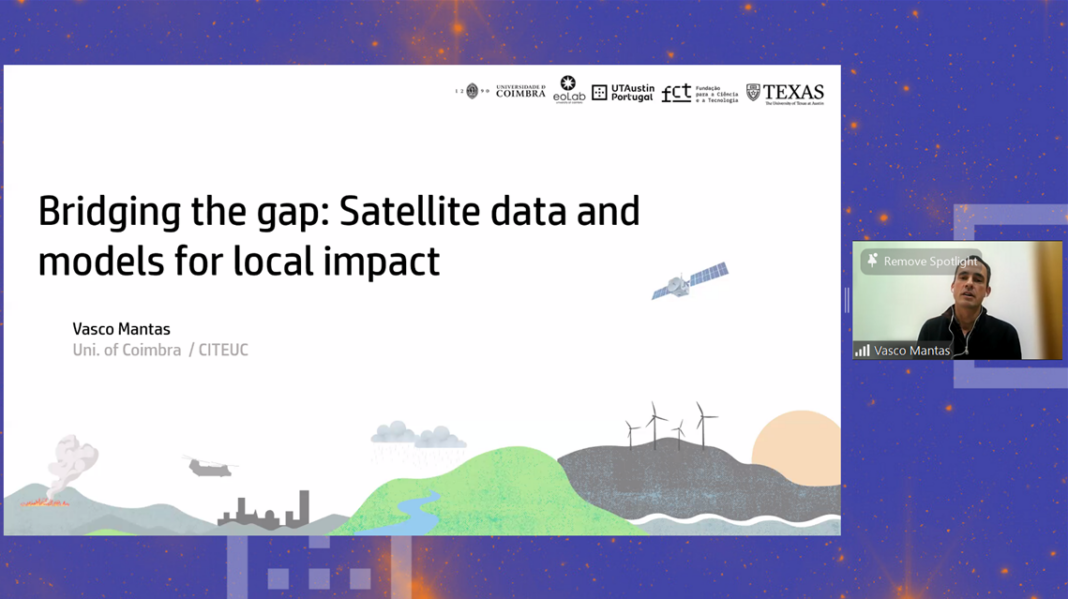As José Saramago, Portuguese writer and recipient of a Nobel Prize in Literature, once said: “You have to leave the island to see the island”. In the case of our planet, this is no exception: knowing our planet through space can give us very valuable information about it. To this end, satellites allow us to monitor several kinds of data, such as the sea level and natural disasters. But how can we use the data obtained by these satellites for local benefit?
To answer this and other questions related to earth observation, the UT Austin Portugal Program partnered with the University of Coimbra and its Earth Observation Laboratory and organized the workshop “Bridging the Gap: Satellite Data and Models for Local Impact”. This workshop was coordinated by Vasco Mantas (Director of the Earth Observation Laboratory) and Zong-Liang Yang (Professor at the Jackson School of Geosciences at UT Austin), who met through the UT Austin Portugal Program in another workshop on this topic in 2019, developing a collaborative partnership since then.
This two half-day online workshop took place on November 20 and 21. It brought together experts from academia, industry and internationally recognized space agencies, who shared opportunities in the space sector in Portugal, examples of how satellite data is (and can be) used in ‘real-world’ applications (did you know that it is possible to monitor potatoes from space?) and demonstrated the Google Earth Engine, a platform that allows you to visualize and analyze satellite images of our planet.
The workshop also offered a platform for participants and speakers to go on networking after online sessions. The more than 100 Participants were invited to establish collaborations by joining a working group to elevating best practices, championing FAIR data principles, and driving Earth Observation applications for sustainable development.
This workshop falls within the activities of the Space-Earth Interactions Program Area, where the Program has also supported the funding of research projects, such as uPGRADE and MAGAL Constellation, and the training of researchers through the short-term research internships initiative.
The workshop’s sessions are available to watch on our YouTube channel.
